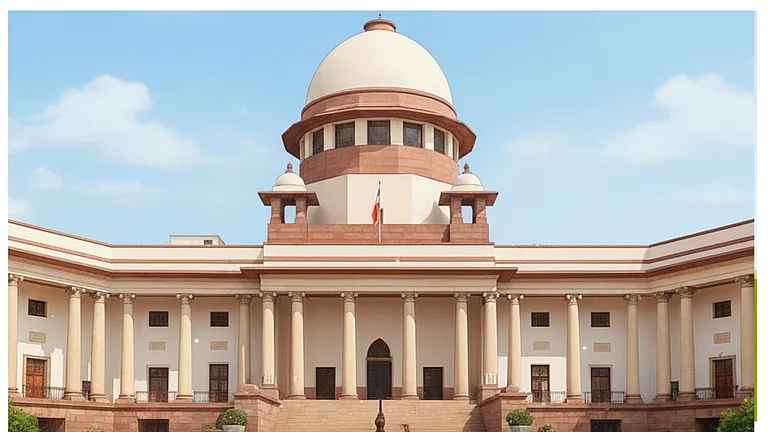The Supreme Court quashed a 1988 dismissal of Railway TTE.
The court found the inquiry findings 'perverse' and misleading.
Legal heirs to receive all monetary and pension benefits.
Supreme Court Sets Aside 1988 Dismissal Of Railway TTE, Orders Benefits To Legal Heirs
A three-decade-long battle ends when the Supreme Court quashed a Railway TTE’s dismissal ordered by the Bombay High Court in 2002, citing ‘Perverse’ enquiry findings
The Supreme Court of India provided great relief to the legal heirs of the deceased Railways employee, a Travelling Ticket Examiner (TTE), who was dismissed from service in 1988. The bench, comprising Justice Sanjay Karol and Justice Prashant Kumar Mishra, quashed the Bombay High Court’s order in 2017, which held the TTE’s dismissal from service. The apex court restored the order issued by the Central Administrative Tribunal (CAT), Mumbai Bench, which had set aside the dismissal in 2002, while the matter was still in process. The core reason to quash the order and restore the employment benefits was based on the Supreme Court’s finding that the department enquiry was “perverse” and based on “complete misleading of the materials” provided during the investigation.
As the TTE is now deceased, the Court ordered the department to extend all monetary, including pensionary benefits, to the legal heir.
Case Background
The case pertains to the incident that took place on May 31, 1988. The TTE (appellant in this case) was serving in the Central Railway, Nagpur. While he was on duty in the 39-Down Dadar-Nagpur Express in a Second Class Sleeper Coach, the Railway vigilance team conducted a surprise check, and following it, found irregularities in his duty requirement, such as:
Demanding illegal gratification of a total of Rs 25 from three passengers (Hemant Kumar, Dinesh Choudhary, and Rajkumar Jaiswal ) for berth allotment
Possessing excess cash of Rs 1,254
Failure to recover the fare difference of Rs 18 from one passenger
Forging a duty-card pass by changing and extending its validity without authority
Subsequently, a charge-sheet was issued against him on July 3, 1989, under the Railway Services (Conduct) Rules, 1966.
He was alleged to show “lack of integrity and devotion to duty” in the charges. The enquiry officer submitted a report in December 1995, proving the charges. It led to the penalty of dismissal from service by the Disciplinary Authority on June 7, 1996.
The appellant approached the CAT, Mumbai bench, which allowed his appeal and dismissed the order against the appellant by the Disciplinary Authority. It also directed the reinstatement of all consequential benefits to the TTE. However, Railways (the respondent in this case) approached the Bombay High Court, which allowed their appeal, quashed CAT’s order, and upheld the termination.
During the pendency of the matter with the High Court, the petitioner passed away, and the legal heir came on record in the case.
Supreme Court’s Observation
The Court, after evaluating all the evidence, observed a fundamental flaw in the enquiry. It found that the primary complainant, Hemant Kumar, was not examined and thus there was also no cross-examination, which is a denial of a fair hearing. The Court also noted that the two other passenger-complainants did not support the charges against the TTE. One of them said that he demanded illegal gratification, and another’s statement was different from the charges against the TTE.
It was noted that the excess cash had been deposited into Railway Sundry Accounts. However, the cash ceiling as per the Railway Board circular, which was used to substantiate the charge, was irrelevant because it was issued on August 22, 1997, after the date of the incident.
Further, the charge of failing to recover fare difference was based only on the statement of the Vigilance Inspector, and the concerned passenger was not examined, and the excess fare receipt book was also never produced.
For the forgery charges, the Court observed that the forged signature was never sent to the handwriting expert.
Court Judgement
Hearing and evaluating all the charges and the evidence, the Supreme Court held, “All the charges have not been found to be proved conclusively against the appellant.” It stated, “The High Court has failed to take note of the legal position that when the findings of the Enquiry Officer were perverse, based on the complete misleading of the materials produced before the Enquiry Officer, CAT was fully justified in setting aside the order of penalty.”
The Court set aside the High Court order and restored the order of CAT, and ordered, “We direct that all the consequential monetary benefits, including pensionary benefits, shall be released in favour of the appellants who are legal heirs of the deceased employee within a period of three months from today.”
The incident occurred in 1988, and justice prevailed in 2025, after more than 37 years.


